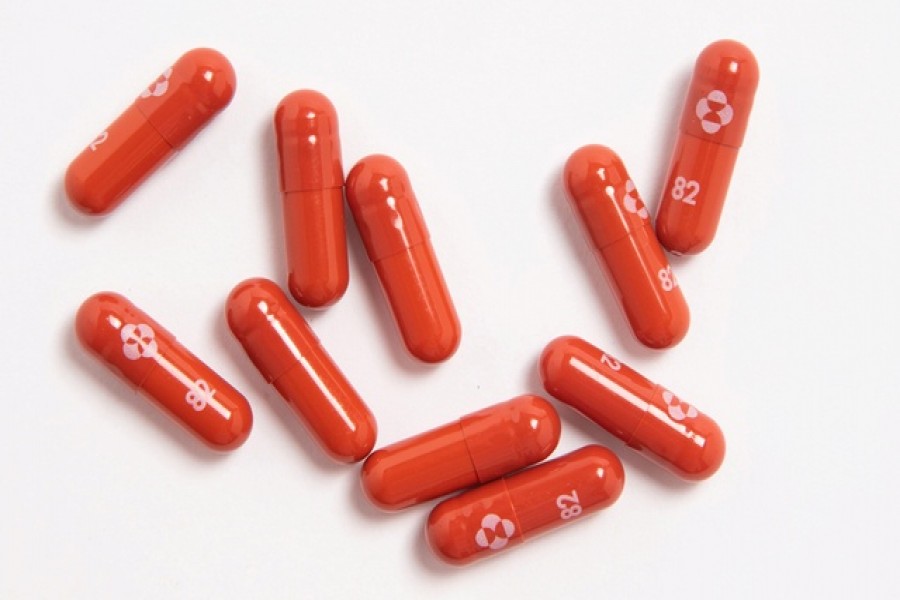Bangladesh okays production of Merck’s COVID pill by Beximco Pharma

Published :
Updated :

The authorities have permitted Beximco Pharmaceuticals to produce a generic version of US drugmaker Merck & Co’s experimental pill to treat COVID-19.
More companies are awaiting approval in Bangladesh after Merck signed a deal that will allow the drug to be manufactured and sold cheaply in poor nations.
Besides Beximco, Square, Eskayef, Incepta, General Pharma, Beacon Pharma, Renata and three other companies have applied to the Directorate General of Drug Administration for the production go-ahead, reports bdnews24.com citing The New York Times.
“Beximco was given the emergency authorisation on Monday. Some more companies will get the authorisation. The process is ongoing,” said Md Ayub Hossain, a director at the DGDA.
The DGDA authorised the production of the drug because “it wants Bangladesh to be free from COVID-19”, said Ayub. “The sooner we bring the drug, the better it will be for us. That’s why we have initiated the efforts [to produce the drug].”
The companies will first submit generic versions of the drug to the DGDA for review. If everything is alright, the DGDA will give the go-ahead for mass production and marketing of the products.
Called molnupiravir, the drug can be taken orally, which makes it stand apart from other treatments, such as remdesivir, which must be administered intravenously. The pill form makes it easier to treat the virus outside of the hospital setting, combating mild to moderate symptoms before they become severe.
Experts have said that the pill could offer fresh promise in combating the coronavirus, and its approval by the medicines regulator marks a major step.
Affluent nations, including the United States, have rushed to negotiate deals to buy the drug, tying up large portions of the supply even before it has been approved by regulators and raising concerns that poor countries would be shut out of access to the medicine, much as they have been for vaccines.
Molnupiravir, developed by Merck and Ridgeback Biotherapeutics, has been submitted for emergency authorisation to the US Food and Drug Administration, which will host a public meeting to review the application at the end of the month.
Britain approved the antiviral drug to treat the coronavirus, making it the first antiviral pill to be endorsed by a public health body for use in COVID patients earlier this month.
Britain’s regulator authorised the drug for both vaccinated and unvaccinated people who have at least one factor that would put them at high risk for becoming severely ill from the virus. In the clinical trial, the most common risk factors were being older than 60 or having obesity or diabetes.
Trial research has suggested that the pill is likely to be most effective when taken during the early stages of infection.
The company entered into voluntary licensing agreements with at least eight Indian drugmakers for molnupiravir, with an aim to turn the South Asian nation into a manufacturing hub for the drug to supply low- and middle-income nations.
But Merck feared that production in just one region would not be enough to ensure rapid access to the drug across the developing world, said Jenelle Krishnamoorthy, Merck’s vice president for global policy.
So the company also engaged in talks with the patent pool, which has deep experience in working with a network of global drugmakers that can meet high-quality standards, including those required for World Health Organization prequalification, she said.
Finally, on October 27, Merck granted a royalty-free licence for its promising COVID-19 pill to the United Nations-backed nonprofit Medicines Patent Pool, an organisation that works to make medical treatment and technologies globally accessible.
The deal will allow companies in 105 countries, mostly in Africa and Asia and including Bangladesh, to sublicence the formulation for the antiviral pill and begin making it.


 For all latest news, follow The Financial Express Google News channel.
For all latest news, follow The Financial Express Google News channel.